UN at the Astana International Forum: Amplifying Global Dialogue and Cooperation
Distinguished UN high-officials attended the Astana International Forum
Last week, the vibrant city of Astana in Kazakhstan hosted the highly anticipated two-day Astana International Forum. This highly anticipated Forum has brought together over 1000 participants from 70 countries: global leaders, policymakers, and influential individuals from diverse disciplines. The United Nations was the strategic partner of the Forum and supported the event by providing high-level speakers and coordinating the participation of several UN agencies.
The participants included notable figures, such as Ms Audrey Azoulay, UNESCO Director-General; Armida Salsiah Alisjahbana, UN Under-Secretary-General and ESCAP Executive Secretary; Mr Miroslav Jenča, UN Assistant Secretary-General; Ms Ivana Živković, UN Assistant Secretary-General UNDP Assistant Administrator; Mr David Chikvaidze, Chef de Cabinet, UN Office in Geneva and Mr Dmitry Mariyasin, UNECE Deputy Executive Secretary.
The primary objective of the event was to facilitate an inspiring and thought-provoking dialogue, fostering collaboration and shaping the trajectory of humanity's future. Under the overarching theme of "Tackling Challenges Through Dialogue: Towards Cooperation, Development and Progress", the Forum served as a dynamic platform for exchanging insights, exploring cutting-edge technologies, and deliberating on effective strategies to address urgent global concerns. During the two-day event, the Forum participants discussed the UN’s role in ensuring peace and security, advancing women’s leadership, financing the green transition, and issues regarding the 2030 Agenda.
UN Secretary-General Antonio Guterres addressed the Forum participants via video message:
“Global leaders must act now to rescue the Sustainable Development Goals, reform an unfair financial architecture and address common threats at a series of important summits starting with the SDG Summit in September. Building on these, the Summit of the Future next year will consider how to take forward many of the proposals of our Common Agenda, and the Astana International Forum provides a new opportunity to discuss these issues and try to collaborative, sustainable and innovative solutions for all”.
President of Kazakhstan Kassym-Jomart Tokayev, opening the Forum, proposed to the global community to hold a Regional Climate Summit in Kazakhstan in 2026 under the UN auspices and other international organizations to facilitate dialogue and find adequate solutions to climate change. He also emphasized the UN’s exceptional role in strengthening peace and ensuring security. The President stressed the need to carry out a comprehensive reform of the UN Security Council, noting the importance of its expansion.
Audrey Azoulay, UNESCO Director-General continued to focus on climate issues, stressing the importance of safeguarding water resources and glaciers in Central Asia. In this region, glaciers have shrunk by 30% over the past 50 years, due to climate disruption. Azoulay called for greater scientific cooperation, risk assessment and early warning systems enhancement.
Shaping a Better World: the UN's Role Amidst Global Challenges
Specific panel sessions of the Forum focused on the UN’s Role in ensuring peace and security, as well as whether the Organization needs to be reformed.
“The UN was created after the Second World War. The situation at that time was completely different. But the structures today are the same. So, definitely, reform is not only needed, it’s long overdue”, said ASG Miroslav Jenča.
The participants proposed that greater interaction between the UN Secretariat and member states is crucial. All the experts agreed that global challenges require global solutions.
Another dimension of discussions highlighted women empowerment issues. Michaela Friberg-Storey, UN Resident Coordinator in Kazakhstan, supported the idea that women should be more active in and around peace negotiations and the security field, as they can bring a tangible impact on peacekeeping environments, helping to protect women’s rights and support the role of women in building peace.
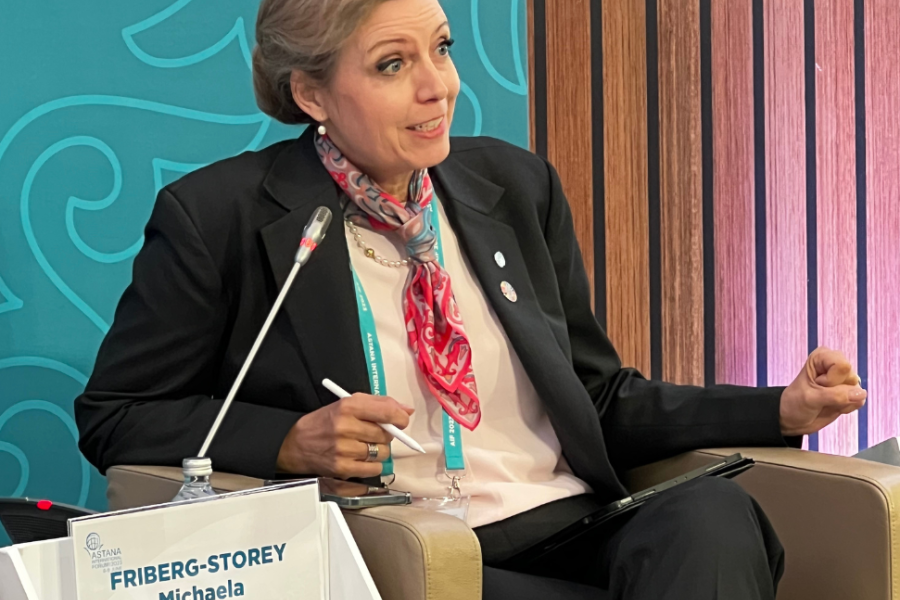
Speakers highlighted the importance of joint initiatives to combat sexual and gender-based violence, which is the key to unlocking many other issues related to women’s and girls’ empowerment. In this regard, activities of the EU-UN joint Spotlight Initiative Regional Program for Central Asia and Afghanistan were highlighted, which is spearheading efforts to combat gender-based violence.
SDG Media Zone - Where Communication Meets Sustainable Development
Moreover, the UN organized The SDG Media Zone on the sidelines of the event, designed to share information and knowledge on sustainable development, global and local activities of the UN entities and priorities of the UN Country Team’s work in Kazakhstan. Over 40 Forum participants have joined the conversation in the SDG Media Zone on the transformation and solutions needed to achieve the 2030 Agenda and hear how the global community are accelerating progress towards this goal.
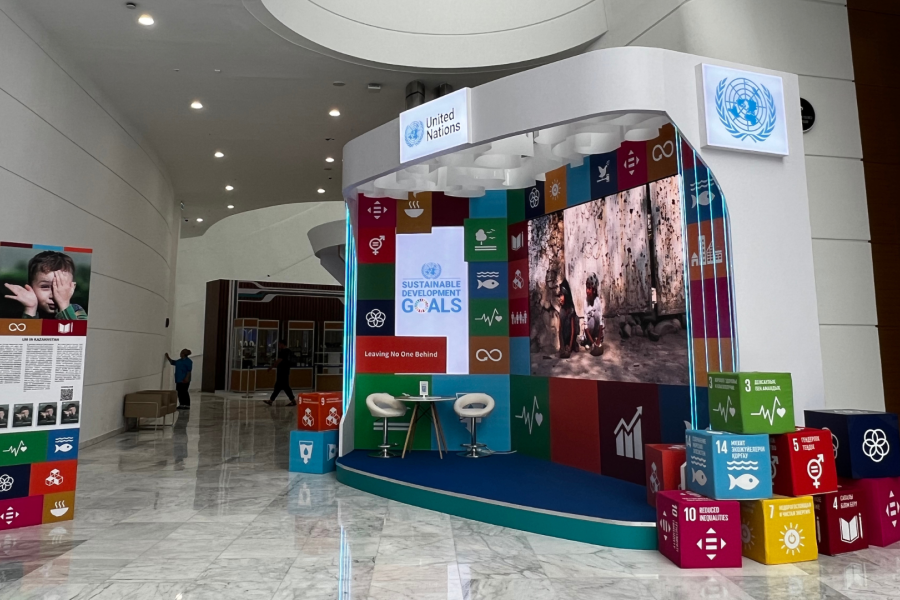
UN high-level officials visited the SDG Media Zone and shared their views on accelerating the 2030 Agenda: H.E. Armida Alisjahbana, USG and ESCAP Executive Secretary, David Chikvaidze, Chef de Cabinet UNOG, Dmitry Mariyasin, UNECE Deputy Executive Secretary.
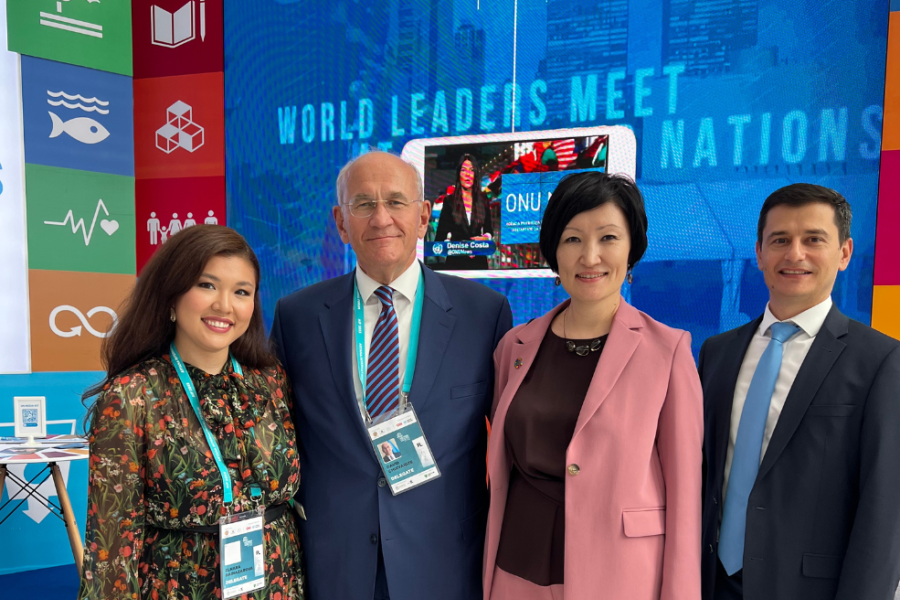
H.E. Armida Alisjahbana noted that Kazakhstan should prioritize SDGs with multiplier effects in its implementation: “I would say that the SDG goal of quality education will have the greatest impact, with a multiplier effect on other SDGs such as health, gender, and hunger. SDGs should involve everyone, not just the government. Media is vital in promoting SDG ideas because they allow direct engagement with the audience”.
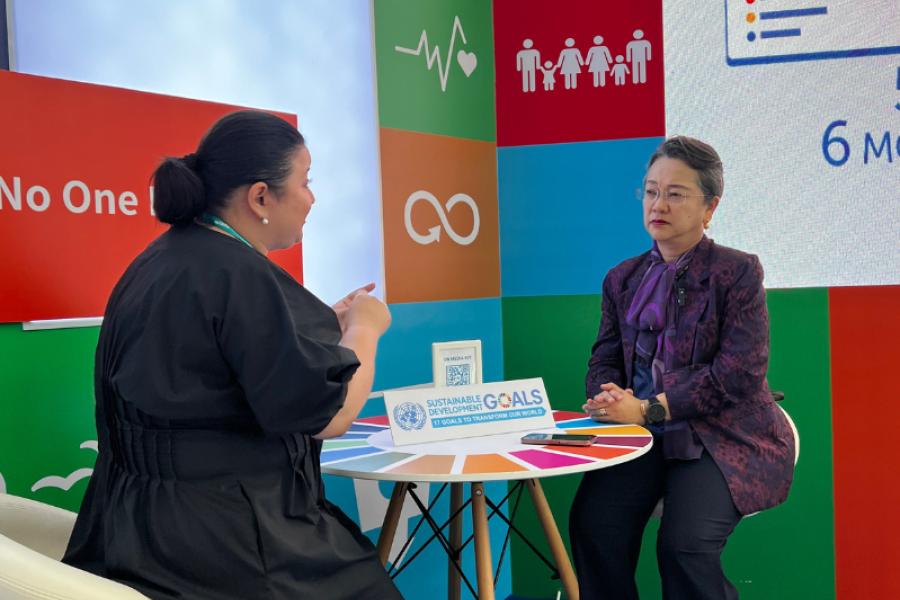
Among the honorary guests were also President of the OSCE Parliamentary Assembly Margareta Cederfelt, prominent journalists Richard Quest (CNN), Ali Aslan (ex-CNN), Ambassador Barlybay Sadykov, etc.
“SDGs represent the way forward, acting as a window to the future. It is crucial for all of us to strive towards implementing them in our daily lives, making conscious choices regarding the transport we use, the food we consume, and various other aspects”, concluded Margareta Cederfelt.
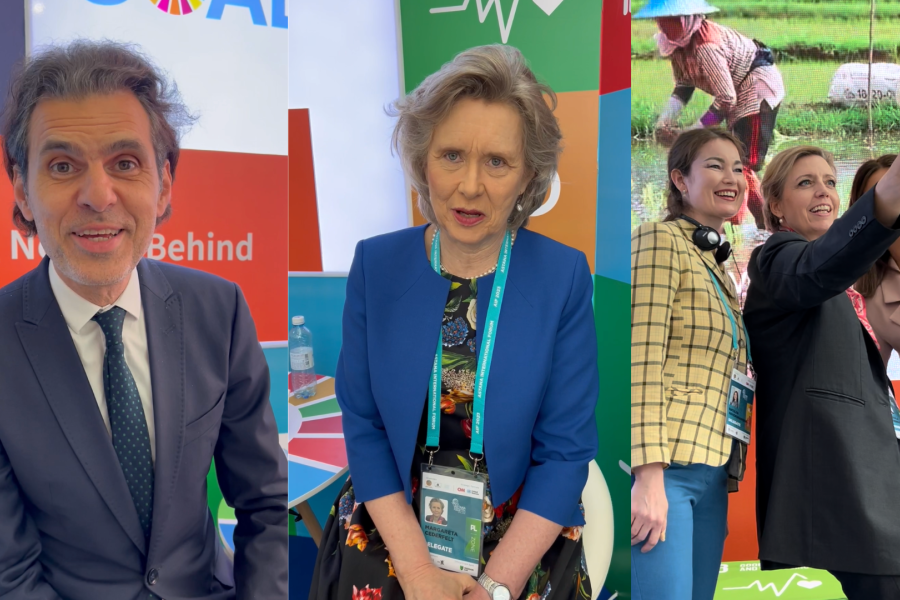
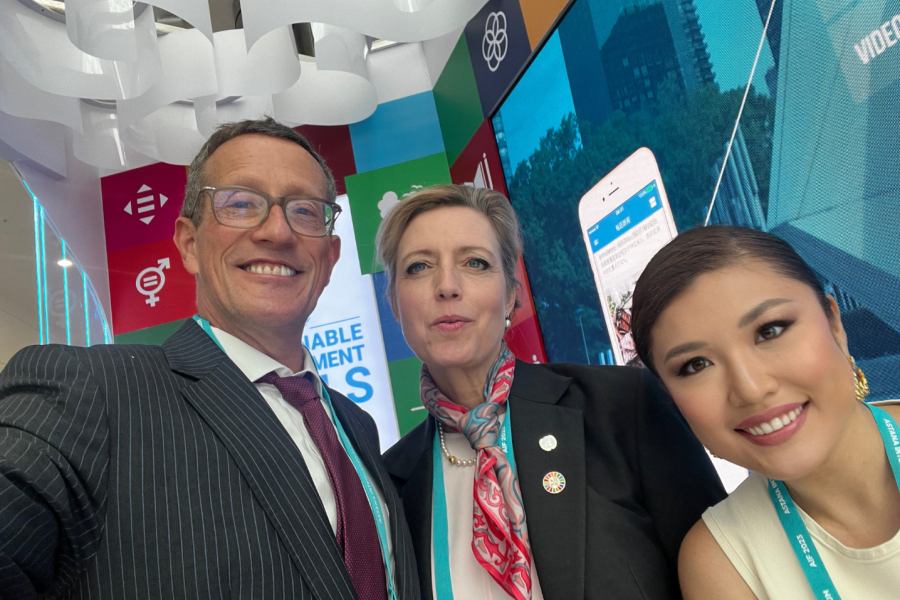
There has also been a significant response from stakeholders, including international organizations, business, civil society, academia, youth and others, who, through a wide range of actions and initiatives, have identified entry points to advance SDGs implementation. The United Nations system has also been undergoing the deepest reform in decades to better respond to the paradigm shift at the heart of the 2030 Agenda.
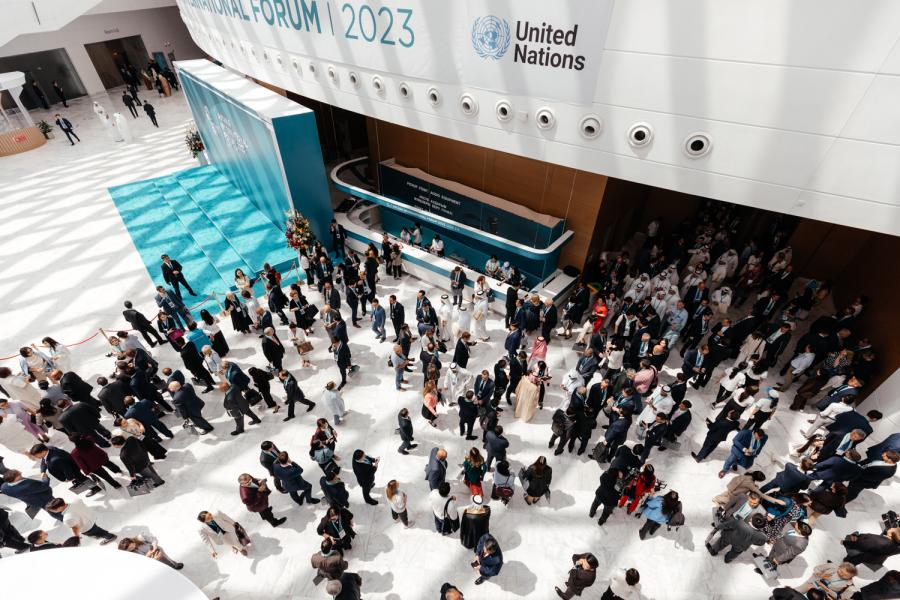
Beyond the stage, the Astana International Forum unfolded as a captivating marketplace of ideas. The Forum served as a significant platform for global leaders, policymakers, and experts to come together and engage in constructive dialogue on the eve of the SDG Summit, which will take place on 18-19 September at the United Nations Headquarters in New York. Through robust discussions, the Forum aimed to foster international cooperation, development, and progress in tackling the pressing challenges facing our world.








